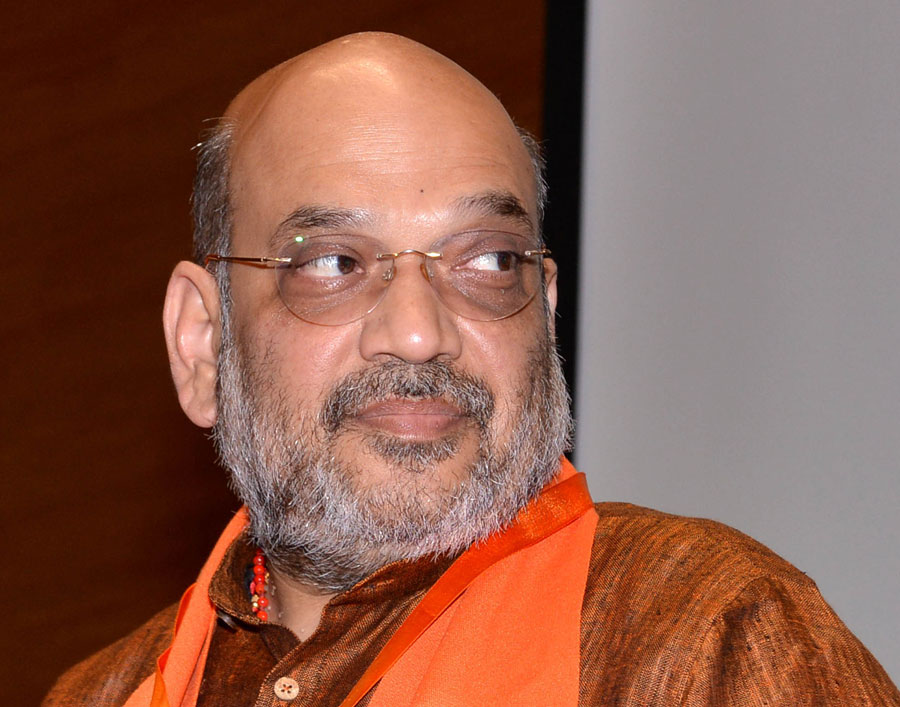The BJP’s polarisation agenda in the run up to next year’s Lok Sabha elections has set in jitters in the ruling Awami League camp as the latest comment by the saffron party president Amit Shah, in which he described illegal immigrants from the eastern neighbour as “termites” eating into national resources, has dealt a blow to several opinion makers on the other side of the border.
Almost all prominent dailies in Bangladesh carried the comment that Shah made while addressing a rally in Delhi on Sunday and discussions on the “insult” dealt on Bangladeshis have begun.
Since the publication of the draft National Register of Citizens (NRC) in Assam on July 30 — which did not contain names of 40 lakh people, mostly Bengali speaking Muslims — Delhi’s approach towards Bangladesh has been under the scanner, even as Dhaka tried to dilute the issue by referring to it as an “internal problem”.
But Shah’s reference to Bangladeshi migrants as “termites”, which was followed by his vow to send them back if returned to power in 2019, has compounded problems for the Sheikh Hasina government, which is often criticised for being a pro-India regime.
“Opposition forces like the Jamaat-e-Islami whip up anti- India sentiments ahead of each election… This time also, questions on why Hasina has failed to get from India our due share of water from Teesta have started doing the rounds. Now, this comment… This will only strengthen the hands of anti-India forces, who are conspiring to bring an end to the Hasina regime,” said writer Shahriar Kabir.
After two successive terms, the Bangladesh Prime Minister faces a key election this December and the count-down to the polls has already started.
Unlike the BJP, which is banking on the polarisation agenda and pursuing it by repeatedly talking about NRC, for the Awami League, it is important to portray that the relationship between Dhaka and Delhi is that of equals.
Against this backdrop, Shah’s comments has castled the ruling establishment.
“These crores of illegal immigrants are like termites and they are eating the food that should go to our poor and they are taking our jobs. They carry out blasts in our country and so many of our people die,” the BJP president said, referring to the NRC in Assam.
While the Hasina regime could not officially react to it, as it could have highlighted Delhi-Dhaka discord, a silence on this issue had the risk of being interpreted as a sign of weakness by most Bangladeshis, who wear nationalism on their sleeves.
So, the only official comment has come from information minister Hasanul Haq Inu, who belongs to the League’s coalition partner Jatiya Samajtantrik Dal.
In a deft balance, Inu told The Telegraph that the comments were “inappropriate” and “didn’t reflect the reality”. But he hastened to add: “We are not worried about the statement as we are confident that it will not have any impact on our relationship.”
Fielding Inu was probably the best possible response from the government, as it did not want any “escalation” by fielding a ruling party leader and at the same time also felt the need to record its “displeasure”.
This element of “displeasure” has resonated across Bangladeshi media. Nayeem Nizam, editor, Bangladesh Pratidin, one of the leading newspapers, said: “India-Bangladesh relationship is going through the best of times.
“So, such comments, which insult people of this country, from a top leader like Shah are unexpected.”
Sources in Dhaka said that the damage potential of the comment was to some extent diluted as the main Opposition party, Bangladesh Nationalist Party, was in disarray and was looking forward to Delhi’s support to press for its demand of a poll-time caretaker government, a proposition that Hasina has rejected.
The BNP, a League insider said, was planning to send a team of leaders to Delhi later this month.
“That’s why they are not raising the anti-India rhetoric in full throttle,” said the source.
He, however, added: “But if such comments continue, it will be difficult to dilute the situation… The Indian side is aware of our predicament.”











